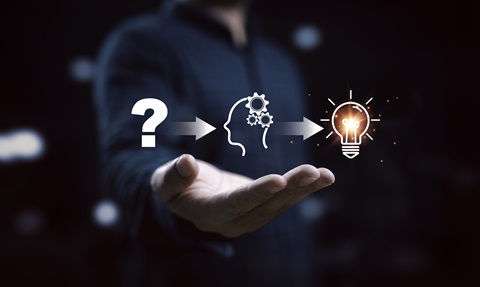Building deeper relationships in 2025
I used to be a tiger dad focused on pushing my two boys to excel at school. As a young and busy parent, I was often ill-tempered and irritable, shouting at them for the smallest infractions.
I changed course when my wife cautioned me that the path I was on would permanently damage my relationship with the kids. I realised that she was right when I noticed my younger son flinching when I engaged him, preferring to avoid me rather than talk with me.
To change, I had to focus on rebuilding the relationship with my boys.
When I started the journey, I was at a loss on how to engage them. A father should instinctively know his children, but this one didn't.
On hindsight, I wish I had the benefit of recent bestseller How To Know A Person by David Brooks, which I have been reading.
Brooks is a Canada-born American author and political and cultural commentator best known for his book Road To Character, about how character is developed in people.
I am not the only one impressed by his how-to book. Bill Gates, founder of tech giant Microsoft, wrote on his blog that he found out from the book that conversational skills and getting to know people better are not just innate traits, but they also need to be learnt and improved upon.
Gates, a self-described introvert, said of learning the mechanics of building deeper relationships: "As someone who has always been more comfortable making software than small talk, I found this idea both refreshing and informative".
Brooks believes that the core of getting to know someone better depends on being open-hearted and having good social skills. He laments that "these are some of the most important skills a human being can possess, and yet we don't teach them in school... as a result, a lot of us are lonely and lack deep friendships".
So, how do people build deeper relationships? Looking at someone.
As Greek philosopher Plato says, the eyes are the windows of the soul.
Before you start talking to someone, you should first make eye contact.
While this seems intuitive and trivial, I am surprised at how many of my students and business contacts are unable to make eye contact for even a short period of time when they talk to me.
The way you look at someone conveys whether he or she is a priority or not. If you look at the person in a warm, respectful and caring way, the other party cannot help but be drawn into the discussion because he or she can sense how important he or she is.
If you look at someone with disinterest and cannot wait to get back to looking at your mobile phone or device, it sends a message that you don't care. The eyes don't lie, and most people can intuitively discern between genuine, feigned and lack of interest.
According to Brooks, "a person who beams warmth brings out the glowing sides of the people she meets, while a person who conveys formality can meet the same people and find them stiff and detached".
To build deep relationships, you should try to cultivate a mindset of tenderness. This requires you to choose to see people for who they are, and not what they are lacking.
The book illustrates this with a story about Dr Ludwig Guttmann, a German Jew, who escaped Nazi Germany during World War II.
He found a job in a hospital in Britain looking after paraplegic soldiers who had been injured in the war.
Dr Guttmann would cut back on the sedatives and painkillers administered to the men and regularly force them out of bed.
When the German doctor was investigated for his actions by a tribunal of his peers, one of them called the injured soldiers "moribund cripples" who should be given pain relief.
Dr Guttmann instead countered that "they are the best of men", which was why he chose to push them to get back on their feet.
This tender and generous way of seeing men who had been maimed and disfigured by the war eventually led to the creation of what people now call the Paralympic Games.
Imagine how great it would be if we could show the same level of tenderness and see the best in others, just like Dr Guttmann. Learn to be "lingerable"
Perhaps the most interesting concept that I found in the book was that of accompaniment - just being there with another person.
Brooks calls this skill the ability to be "lingerable", for two people to be with each other without an agenda, letting things flow and waiting for the relationship to emerge.
This is important because it's just not possible to have deep intense self-disclosure conversations all the time. That would be too exhausting.
I liken it to mining.
To mine for gold, you have to sift through a lot of sand and rock before you find the precious metal. Similarly, if you want to build a deeper relationship, you should be prepared to spend more time with that person, because in the moments of accompaniment, precious gems of bonding appear.
When I resolved to build deeper relationships with my boys, it took time to change course.
Not having Brooks' book at the time, what helped was to observe and learn from those around me. One person that I learnt a lot from is my mum.
When she sees her grandchildren, she drops whatever she is doing and immediately makes eye contact with them, giving them her full attention.
What follows is a series of questions from her about how they are, and what they have been up to, followed by a hug and kiss.
Even though the questions are always the same, they are asked with a deep tenderness and concern that leaves the boys in no doubt about how much they mean to her.
I have seen the boys build a wonderful and deep relationship with their grandmother over the years.
I have developed my own approach to accompaniment as the boys have grown up. The family nickname for me is "Grab-Pa" because I usually offer to shuttle the boys around in order to spend time with them.
On many of the rides, we don't talk about anything of great significance. But recently, my elder son shared about how shocked he was that his friend from school had committed suicide and how shaken he was by that incident.
In the book, Brooks writes that "the quality of our lives and the health of our society depends, to a large degree, on how well we treat each other in the minute interactions of daily life".
Deep family relationships are the foundation of our society. When family relationships are strong, those relationships in turn emanate to the larger community, allowing people to show care and concern for others during celebrations and in moments of deep loss and suffering.
As 2025 dawns, perhaps we can resolve to build a deeper relationship with someone in our lives?
Abel Ang is the chairperson of Republic Polytechnic and an adjunct professor at Nanyang Business School.
Source: The Straits Times






